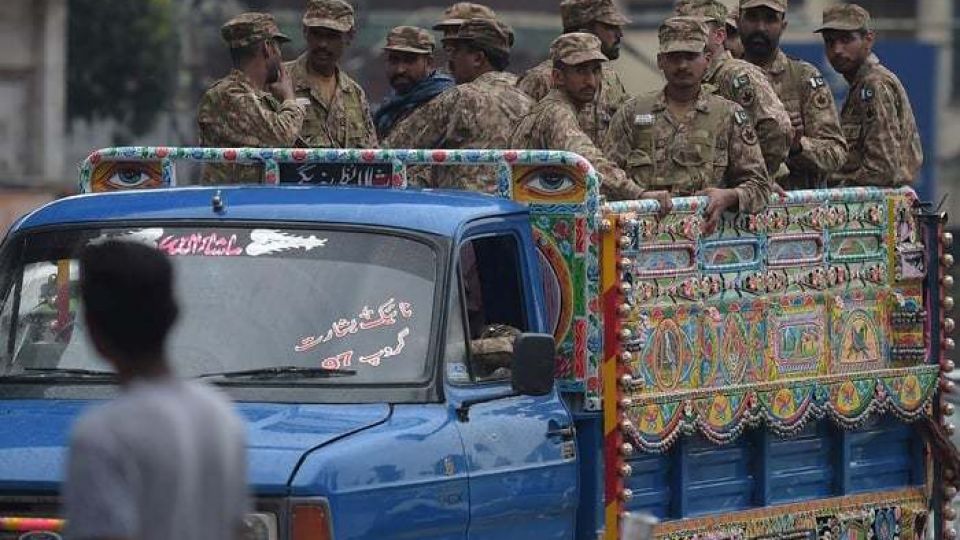July 25, 2018
Gallup Poll predicts a neck-and-neck contest between Imran Khan’s PTI and Nawaz Sharif’s PML(N) in Pakistan’s second civilian-to-civilian transfer of power.
Pakistan is holding its 11th general election today (July 25), with 105.95 million people expected to vote.
The big battle is between Pakistan Muslim League-Nawaz (PML-N), Pakistan People’s Party (PPP) and Pakistan Tehreek-i-Insaf (PTI).
This will be the second civilian-to-civilian handover of power in the country’s history. The first smooth transitioning being witnessed in 2013.
However, the 11th general election is being seen as the dirtiest with allegations against the Pakistan’s powerful military of tampering.
The election is also being seen as the bloodiest with more than 179 people killed in a series of suicide attacks targeting election rallies. More than 154 people were killed in a single attack in the southwestern town of Mastung, the second deadliest attack ever on Pakistani soil, less than two weeks ago.
Voting began at 8am PST. A public holiday has been declared to enable people to vote. Around 371,388 army personnel have been deployed across 85,000 polling stations in the country to ensure no untoward incident occurs, a report in Dawn said.
Voters will elect 272 members of the lower house of parliament, as well as for the country’s four provincial assemblies. Results are expected to trickle in later during the day, the election commission said.
“We are trying our best to deliver free, fair and unbiased elections in Pakistan,” said Sardar Muhammad Raza, the chief election commissioner, on the eve of the polls.
The campaign season has seen a slew of allegations traded between the country’s top three parties, PML-N, PTI and PPP.
Earlier this month, PML-N chief Nawaz Sharif – whose party swept to power in the 2013 general election – was arrested after being convicted by an anti-corruption court, along with his daughter Maryam seen as his political heir.
With Pakistan’s Supreme Court banning Nawaz from from holding public office for life, his younger brother Shahbaz, who has served as chief minister of Pakistan’s biggest province Punjab for three terms, is contesting the election as the party’s nominee for prime minister.
Leaders of the PML-N and former prime minister Benazir Bhutto’s son – Bilawal Bhutto Zardari’s PPP – have accused the country’s powerful military of intimidating supporters and forcing candidates to switch allegiances, media reports said. Benazir Bhutto was assassinated months before the ninth general elections in December 2007.
At least 20 PML-N members defected the party in the weeks leading to the vote, either joining the PTI or choosing to run as independent candidates.
The PTI, led by cricketer-turned-politician Imran Khan, is seen as backed by the military, even as the party has dismissed these charges.
Khan decided to give politics a shot after his career in cricket ended in the 1990s. However, he got seen as a serious political contender only in 2013. He lost by a huge margin to the PML-N in the last elections, but stands a good chance to become Pakistan’s next prime minister.
Meanwhile, the Human Rights Commission of Pakistan (HRCP), an independent watchdog, has described the election as “the dirtiest in the country’s history”. It has also expressed concern at the curbs imposed on media freedom.
According to Dawn, a poll conducted by Gallup Pakistan based on data from five separate polls carried out in the months leading up to the July 25 elections forecasts that the PTI will likely emerge as the largest party on the national level, but that it will be followed closely by the embattled PML-N in terms of vote.
The research organisation concluded that the 12 per cent undecided voters may tilt the balance of the election in Punjab, the country’s largest province, thus ultimately determining the fate of the next federal government.
Also adding to the uncertainty are allegations that not all political parties are being provided with a level playing field ahead of the polls.
“There is [a] considerable display of judicial and para-judicial activity culminating in arrests, disqualifications and judgments which cause concern among all key contestants, except the front-runner of the polling data, PTI,” Gallup Pakistan observed.
The “poll of polls” released a day ahead of countrywide general elections constitutes the average of poll findings by five different polling organisations and publishers: Gallup Pakistan, Institute for Public Opinion Research, Sustainable Development Policy Institute/Herald, Pulse Consultants and Roshan Pakistan.
“The conclusion shared by nearly all pollsters is that it is an unpredictable election,” Gallup Pakistan wrote in its report.


